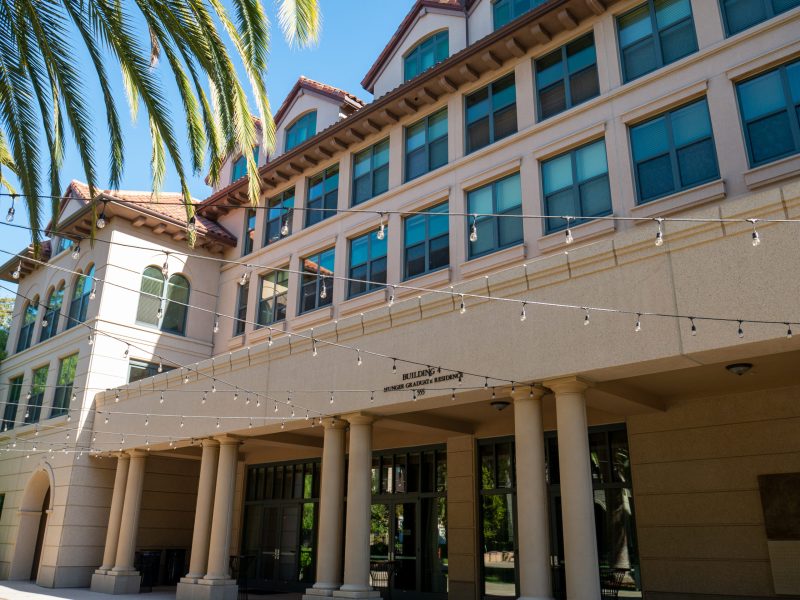Joy McKenna would not be a postdoctoral scholar at Stanford if she could not rely on a partner for financial help. McKenna, a third-year postdoctoral scholar in the microbiology and immunology department, told The Daily housing affordability issues are not unique among Stanford postdocs.
With the combined effects of high inflation, the COVID-19 pandemic and notoriously high Bay Area rents, McKenna and many of her peers said they struggle to find housing and afford rent near Stanford’s campus.
Many postdocs’ only option is to find off-campus housing. As non-matriculated students in the graduate housing lottery system, postdocs are assigned to housing after all matriculated students, leaving some without a spot on campus.
Unfortunately for postdocs, the Bay Area is in a “housing crisis,” said Shanti Singh, communications and legislative director for local nonprofit Tenants Together. Singh said that it is important to contextualize postdocs’ current housing issues within the larger history of housing development in the Bay Area.
“We created a bunch of jobs, and then we didn’t create any housing that people can afford at those income levels,” Singh said. “Some of these income levels are so far below what we would consider market-rate, but this is where we need direct intervention.”
The demand for affordable market-rate housing dramatically exceeds the supply, Singh said.
According to second-year postdoc in pathology Melissa Steele-Ogus, this imbalance leaves out-of-state and international postdocs in especially difficult circumstances when searching for housing.
When inquiring about a Stanford-provided housing complex, Steele-Ogus said she was discouraged from applying by the lengthy waitlist — twice.
Many postdocs also carry student debt after finishing multiple degrees, furthering their expense burden.
“About 15% of my income each month is just going toward that student debt,” McKenna said. Adding to her private debt, McKenna said, are unpaused student loans that come into play this month.
“On top of having to also pay $3,600 a month for rent — that’s already more than my actual paycheck a month,” McKenna said. “We went through the whole Ph.D. process. We got here. And then now it’s a whole new crisis of, ‘Are you going to be able to afford next month’s rent?'”
Worries about rent “shouldn’t be an issue,” McKenna said.
Lack of affordability also leads to problems with diversity and inclusion, according to McKenna, who said that only those who can afford to work with the scholarship or outside financial support can engage as a postdoc. By increasing the income of postdocs, Stanford would “be able to bring in future postdocs that aren’t just coming from a select cohort,” McKenna said.
University spokesperson Joel Berman wrote that the University is engaged in “a variety of efforts to address” housing affordability issues.
“The housing challenges some postdocs are experiencing, driven by the lack of housing availability and affordability in our region, is a critical issue for Stanford,” Berman wrote.
Berman wrote that resources include personalized assistance from Faculty Staff Housing (FSH), Pilot Transitional Housing Program and additional housing in Middle Plaza in Menlo Park.
Some postdocs are asking for more.
According to McKenna, Stanford postdocs make $71,650 a year, which roughly equates to an hourly wage of $34.45 for a standard work week. McKenna went on to explain that when using the MIT Living Wage Calculator for Santa Clara County, the wage is only considered livable if the individual is single with no dependents or if two adults are working and have no more than one dependent. All other circumstances puts the salary below a living wage.
“Our current wage is by no means inclusive or considerate of the many different family structures of Stanford postdocs,” McKenna said.
When asked what someone in Steele-Ogus’s position would ask for from the University, Steele-Ogus said “more postdoc dedicated housing.”
However, Steele-Ogus said that even in cases where a new housing complex is built, some postdocs do not make enough money to have their applications approved.
McKenna said this issue poses an issue to academia beyond individual postdocs: “Honestly, it’s driving a lot of postdocs out of academia.”
“I value my postdoc, and I really want to make the most of it,” McKenna said. “To be here is truly an honor … we just don’t make enough to live here.”
